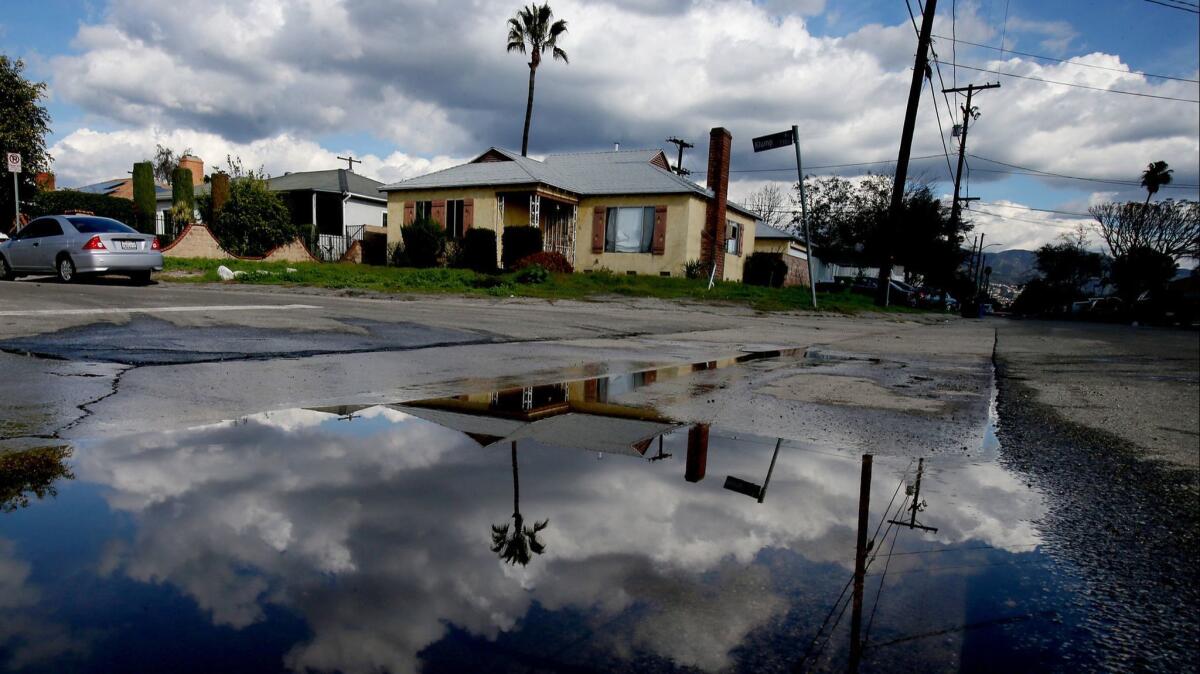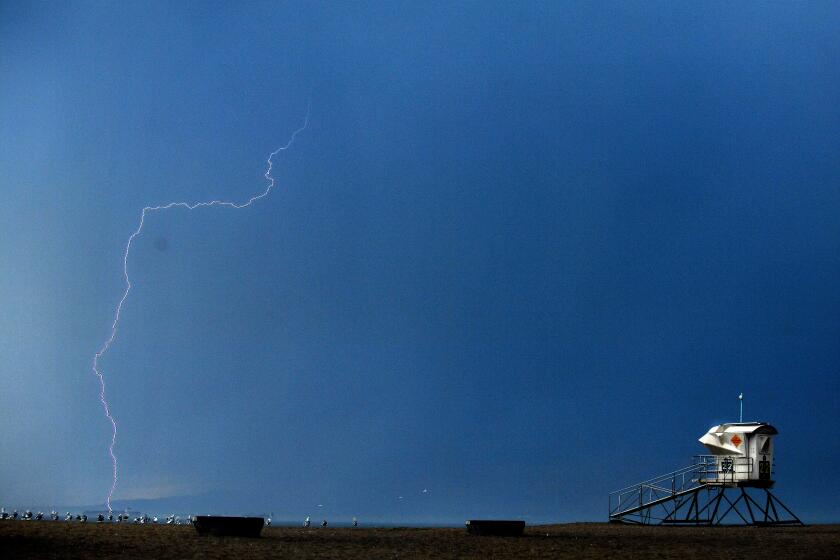L.A. County votes to put new property tax before voters to clean storm water

- Share via
Los Angeles County supervisors voted Tuesday to place a property tax before voters in November to raise money for projects to capture and clean storm water.
The measure would allow the county to levy a tax of 2.5 cents per square foot of “impermeable space” on private property. Government buildings, public schools and nonprofit organizations would be exempt.
For the record:
9:45 p.m. July 17, 2018A previous version of this story said fines for failing to clean up water discharged into local waterways would total $20 billion over 20 years. That is L.A. County’s estimated cost of compliance with the regulations.
Revenue from the tax, estimated to amount to $300 million annually, would fund the construction, operation and maintenance of projects that collect, clean and conserve storm water. The average tax for a single-family house would be $83.
Advocates of the Safe, Clean Water Program say it would improve water quality, enabling cities across the county to comply with federal clean water regulations as well as increase the local water supply.
“Can we ensure an adequate water supply for the future? Can we improve water quality? Can we make sure beaches are clean? The answer, happily, thanks to all of your work, is yes,” said Supervisor Sheila Kuehl, who has led the effort.
“L.A. County is heavily reliant on imported water and faces an uncertain future,” Department of Public Works Director Mark Pestrella said in a presentation before the board Tuesday. “Storm water capture systems are a sound investment in our water security efforts.”
More than 100 billion gallons of storm water is lost to the ocean from L.A. County every year, carrying with it 4,200 tons of trash and pollutants.
With the Safe, Clean Water Program in place, the county could capture up to 42 billion of those gallons, Pestrella said.
Though benefits to the water supply have been a major selling point for Kuehl and Pestrella, the primary goal of the program is to help cities meet costly water-quality mandates.
Under the federal Clean Water Act and related permits given out by the state, cities must clean up the water they discharge into local waterways or face possible costly fines and lawsuits. Compliance with the regulations is estimated to cost L.A. County a total of $20 billion over 20 years.
“We’ve got 88 cities in the county who have been unable to fully address water quality issues because there is no source of funding,” Kuehl said. “And the deadline to meet the requirements is getting closer and closer.”
More than 100 people spoke at Tuesday’s hearing, most in support of the proposed ballot measure.
Some cited the potential for job creation and benefits for disadvantaged communities, which are identified as a priority under the program.
“We support [this measure],” said Luis Melliz of the Council of Mexican Federations, an L.A.-based nonprofit. “Our most vulnerable communities suffer disproportionately from high flood risk, poor air quality, poor water quality, extreme heat … and lack of green space.”
Others cited concerns about fairness to those who have already taken measures to mitigate storm water runoff and about the lack of a sunset date for the tax.
The program would grant credits to parcel owners who can show they already capture or treat storm water or have reduced the amount of runoff from their property, but they would have to recertify their eligibility every two years.
The proposed ordinance would reevaluate the need for the program after 30 years and possibly reduce the tax at that time, but it makes no guarantees.
Although the L.A. Chamber of Commerce formally adopted a neutral position on the measure at the last minute, other business groups continue to oppose it.
Mike Lewis of BizFed called the credit provisions burdensome, costly and “designed to discourage people from applying.”
Peter Herzog of NAIOP, a commercial real estate organization, said attention had been diverted from the fact that the measure is “a brand new, permanent tax” with no implementing regulations yet attached.
Supervisor Kathryn Barger cast the lone dissenting vote.
“If this were a parcel tax that dealt strictly with the [storm water discharge] permit on compliance, I would be a yes vote today,” she said. “I just can’t vote for something that goes above and beyond at a time when I feel we need to be fiscally responsible.”
The tax, which will appear on the Nov. 6 ballot, will need approval from two-thirds of voters.
Twitter: @AgrawalNina
More to Read
Sign up for Essential California
The most important California stories and recommendations in your inbox every morning.
You may occasionally receive promotional content from the Los Angeles Times.













